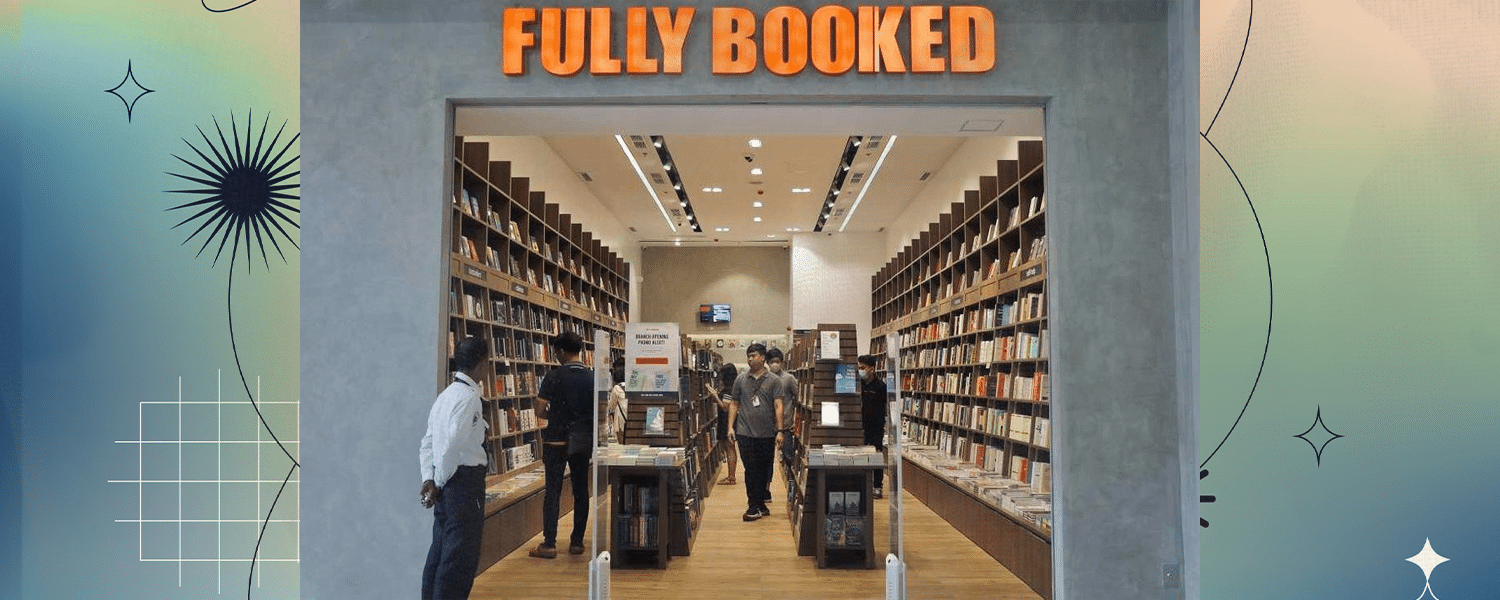For psychology student Ian Aseron, 27, and indie author Frances Ocampo, 25, reading books has been a pivotal part of their childhood.
Asero began reading books seriously at the age of 8. Being surrounded by voracious readers at home, Aseron’s first books were encyclopedias, dictionaries, and the yellow pages or the telephone directory book. Children’s books then followed.
Ocampo, who is also a full-time head cashier, was in Grade 6 when she got interested in reading pocketbooks, comics, anime, and books about travel and languages.
But with the advent of the digital age, the importance of physical books came into question. Can electronic books and audiobooks replace them?
The idea of e-Books started in 1930s when American writer Bob Brown wrote the book The Readies. He said: “The written word hasn’t kept up with the age… The movies have outmaneuvered it. We have the talkies, but as yet no Readies.”
His idea was realized after Project Gutenberg was launched and the U.S. Declaration of Independence was digitized by Michael Hart, making it the world’s first e-Book, according to the U.S.’ Government Book Talk.
The audiobook industry also boomed in 1931 after the U.S.Congress established the talking-book program called “Books for the Adult Blind Project.”
If the fast-evolving technology overtake everything, would physical books still be of importance for readers?
Benefits of physical books
The answer seems yes if we look at the latest business strategy of popular bookstore chain Fully Booked, who recently announced its expansion to six locations outside of Metro Manila.
Four of its new stores opened in SM City Iloilo and SM City Marilao in April, in SM City Pampanga on May 12, and in SM City Bataan on May 19.
The two other branches will be built in SM Seaside Cebu and SM Sta. Rosa in Laguna.
Fully Booked founder and Managing Director Jaime Daez said in a statement that a physical store will allow them to “connect with our customers on a personal and relational level, in a way that cannot be replicated online.”
“Despite living in a digital world, Filipino bookworms continue to be eager to experience looking through physical shelves and being surrounded by thousands of potential great reads,” he said.
Aseron and Ocampo read both from physical books and e-Books. But Ocampo said she would still choose physical books over the digital ones.
She still buys hard copies even if she had already listened or read a particular story online, she continued.
“As a reader, I was inspired by the author [and] writers to write my own book,” the author, known as HeavenKnowsFLO in Wattpad, shared.
“It’s like a great achievement in life to have a collection of physical books because for me this is one of my investments in life, having a huge library where I can put all my favorite books,” she added.
There are a million reasons why it’s still best to own a physical copy. One of them, Ocampo said, is the opportunity to have it signed by your favorite author.
The bookstore’s expansion also became a relief for Ocampo as she won’t have to go far to get the book she wanted.
Before the Pampanga branch opened, she had to travel to SM North Edsa in Quezon City just to get a copy of her favorite book.
“As an old school type of person, bookstores should still have a physical store and be more accessible to readers like me. Because it’s a different feeling when you hold a book than when it’s just on your device,” she explained.
Meanwhile, a 2014 study conducted by researchers at Stavanger University in Norway reported that readers of printed paper tend to absorb more information than e-Book readers.
“I do not get as easily distracted with physical books in co[m]parison to reading devices with internet access,” Ocampo said, continuing, “[I]t deviates me from reading.”
Books as therapy
Apart from the knowledge readers can gain, reading books can be therapeutic.
“I have always liked stories. Access to books freed my mind from the confines of my family’s home,” Aseron said.
It also became his reward to himself for his perseverance in his adult life and for his academic achievements.
The same goes with Ocampo. She said reading has become a way for her to ease her exhaustion from school, house, and work.
“Aside from that, reading books made my vocabulary wider than before. And I really love to support the physical books published by the writers,” she continued.
Many millennials and Gen Zs still patronize buying physical books. One would still see people reading them on public transportations, coffee shops, and even at parks.
Aseron and Ocampo still hope that these books will continue to thrive no matter how the digital world would change.
“I still see the value of reading books. How they appreciated the good quality of the book, from the format, binding and especially the importance of having this copy,” Ocampo said.
Aseron, meanwhile, said, “Books may physically cease in the years to come, but once you have a copy of them, no excuses such as revoked access and file corruption can stop the next user from looking forward to them.”









